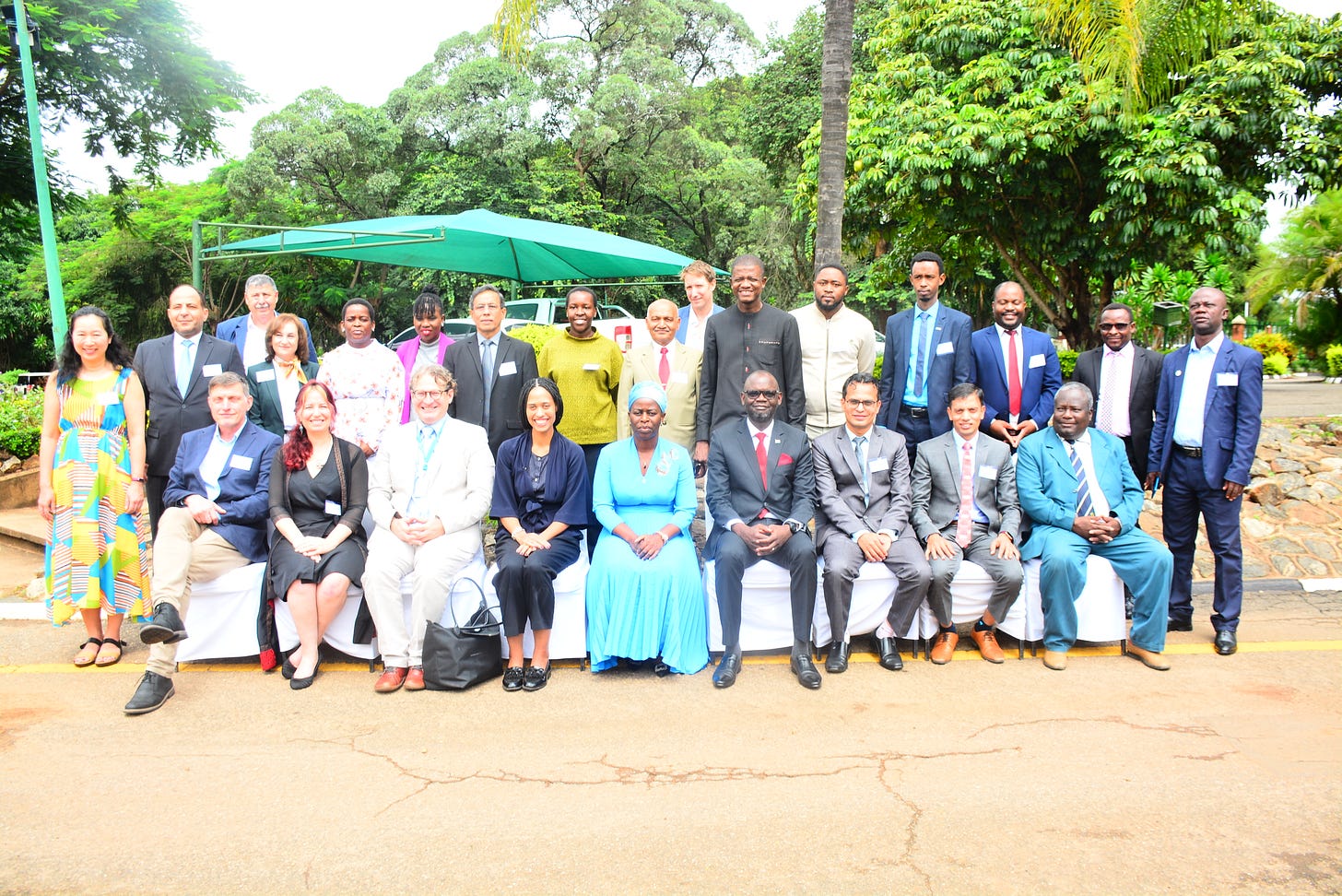7 Countries Plan Climate-Resilient Water Strategies Under Global Leadership Program
Lilongwe, Malawi – Leaders from seven African, Middle Eastern and Asian countries including high-level delegates from UNICEF, the British High Commission in Malawi and the Global Water Partnership are meeting in Lilongwe, Malawi, to assess efforts made in the seven countries towards building more climate-resilient water services under the multi-partner Global Water Leadership (GWL) Programme.
The 2-day meeting was opened by Malawi’s Deputy Minister of Water and Sanitation, Hon Liana Kakhobwe Chapota, MP.
The seven countries represented at the event – the Central African Republic, Malawi, Nepal, Palestine, Rwanda, Tanzania, and Uganda – have developed national response strategies to their countries’ major barriers in water resources management (WRM) and water and sanitation (WASH) services.
Funded by the UK Foreign Commonwealth & Development Office (FCDO), the Global Water Leadership in a Changing Climate (GWL) programme was co-implemented across a total of ten countries by the Global Water Partnership (GWP), United Nations Children’s Fund (UNICEF), Sanitation and Water for All (SWA), Joint Monitoring Programme for Water Supply, Sanitation and Hygiene (JMP) and the World Health Organization (WHO).
The programme winds to a close on 31 March 2024.
Since launching in April 2021, GWL has been working to strengthen national support for water resource and services management, provide critical information and analysis to identify and resolve barriers, input into water and/or climate policies, and helped governments bolster its climate resilience.
At the core of the GWL programme are government-validated Response Strategies for addressing the most critical barriers to climate-resilient water management.
Barriers have been identified by national stakeholders, who have prioritized the top 2 to 4 barriers in their respective country.
Governments in the seven countries will integrate the response strategies into their national plans and programmes as well as mobilize water stakeholders to contribute towards financing strategies.
The two-day workshop was opened with remarks on the importance of strengthening partnerships to promote the role of water in climate resilience, culminating with a welcome address from Malawi’s Deputy Minister of Water and Sanitation.
“I would like to urge all governments that participated in the implementation of the GWL programme to find a way of integrating these strategies in national plans and policies. That is the easiest way to ensure seamless implementation of the strategies. In Malawi, the three response strategies are expected to feed into the One WASH Programme that Malawi intends to develop and implement,” said Chapota, Deputy Minister of Water and Sanitation.
Other notable guests include the Malawi Director for UNICEF, the Deputy High Commissioner and Development Director of the British High Commission, Malawi, and the UNFCCC Chair for the LDC Coordination Group.
“The GWL Programme has strengthened national support for water resources and services management while infusing a more holistic approach to water management into the sector and bolstering its climate resilience,” said Lesley Pories, GWL Global Coordinator at the Global Water Partnership.




